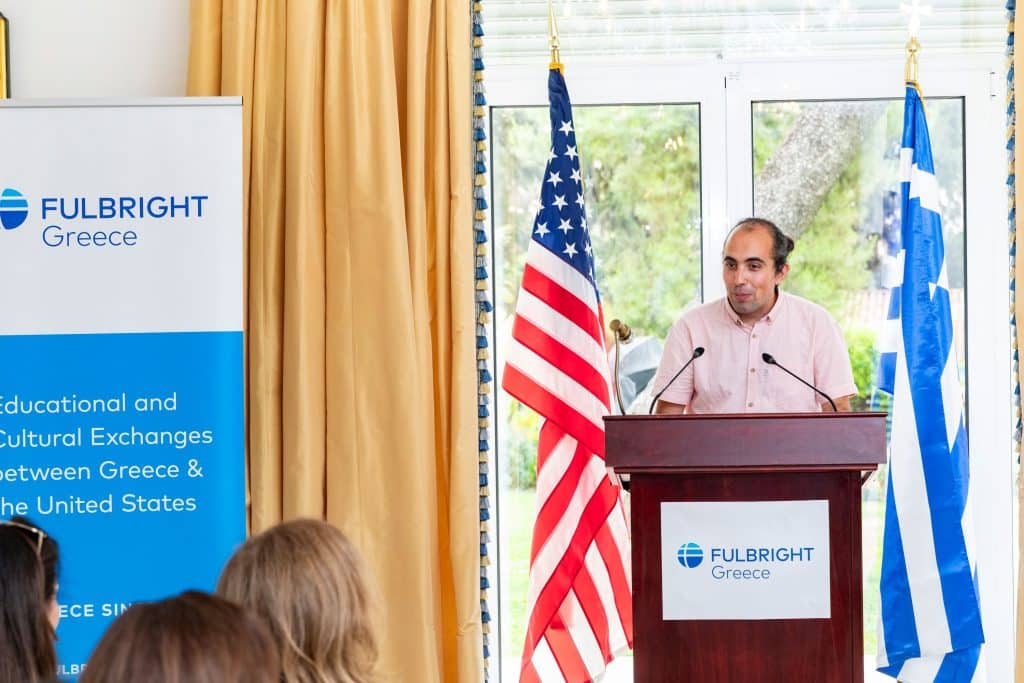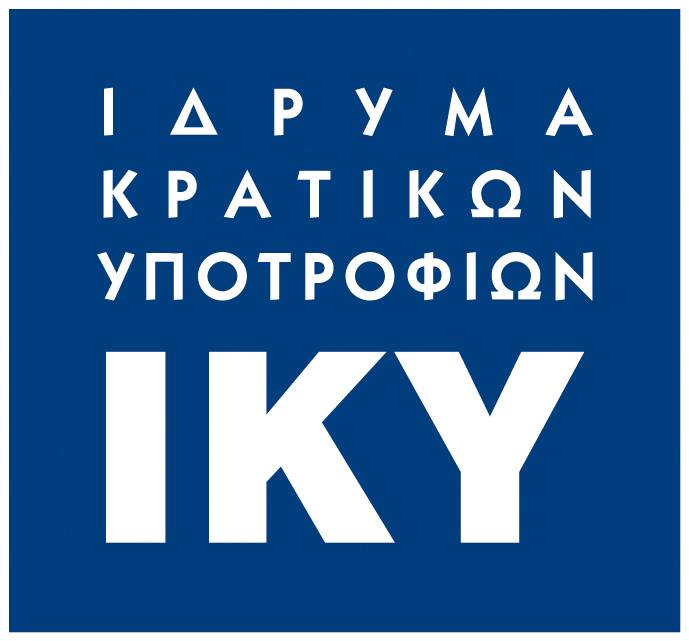
Young scientist Andreas Vavvos was one of the first five scholars to be awarded a mobility scholarship during the academic year 2023-2024, which marked the first year of the IKY-Fulbright partnership program. This initiative provides scholarships to Greek doctoral candidates enrolled in Greek Higher Education Institutions (HEIs) for mobility to universities and research centers in the United States.
As a Ph.D. candidate in the Department of Psychology at the School of Social Sciences, University of Crete, and the Department of Social Anthropology at the University of St. Andrews (Scotland), Mr. Vavvos’s primary research focus is the anthropology of energy, specifically the causal explanation of opposition to the energy transition in Western Macedonia and Crete. He spent six months at Rice University in Houston, Texas, at the Center for Environmental Studies, one of the world’s top interdisciplinary research centers for environmental issues.
We were delighted to hear from Mr. Vavvos’s mentor at Rice University, Professor Cymene Howe, that he successfully completed his research.
It is worth noting that Mr. Vavvos had previously participated in the Erasmus+ Program through the University of Crete.
Below is his speech, which deeply touched us:
I was born and raised in a lower middle-class household in Kozani, Western Macedonia, where my parents ran a refrigerator repair business. At the age of eighteen, driven by a desire to “help people” and a deep curiosity about human nature, I decided to pursue a degree in psychology. I moved to Crete to study psychology, in 2011, at a time when, unfortunately, my parents’ business closed, leaving our family in a precarious situation. To become financially independent, I worked as a football referee while studying. I also started working on university research projects. Due to financial constraints, I was fortunate to receive free housing and meals at the university. During my time in Texas this year as an IKY-Fulbright scholar, I often praised the Greek State for offering such invaluable support to students.
So, psychology in Crete. Even though I enjoyed studying psychology, I soon realized it focused too much on individuals. So, I shifted to sociology, only to find it overly centered on society as a whole. Eventually, I turned to anthropology, where I am now pursuing my doctorate. As someone from Western Macedonia, Greece’s energy hub, I felt compelled to study a subject that would benefit my community and birthplace. I chose to focus on understanding why people oppose the current energy transition. It was during this period that I had my Fulbright experience in Houston, Texas, as an IKY and Fulbright grantee, marking my first journey outside of Europe. I vividly remember Dr. Sofia Triliva, my supervisor and a former Fulbright grantee, advising me when I entered her office: “I understand you may not receive the grant, but you should consider applying for this scholarship.” Later, Dr. Daniel Knight, my other supervisor, suggested, “Why not Rice University in Houston? It’s the obvious choice for you.” I worked at the Center for Environmental Studies at Rice University, where I gained invaluable interdisciplinary skills, collaborated with knowledgeable graduate students and professors, and experienced Southern hospitality in all its forms. However, as an energy researcher, nothing will ever top the opportunity to live in Houston—the energy capital of the world.
I would like to express my sincere gratitude to IKY and the Fulbright Foundation for funding social science researchers like myself. I feel privileged to have received this opportunity. In an era where funding for the social sciences is increasingly scarce, this decision is commendable. As energy researchers, we understand that while technical expertise is crucial for addressing climate change, it is insufficient on its own. We urgently need sociological, psychological, anthropological, and interdisciplinary tools to critically examine the social and political context in which these technological advancements are being implemented. This is not only crucial for researchers but also for addressing the sustainability challenges our planet faces.
As an amateur actor, I would like to close this speech with one of my favorite excerpts from “Wind, Sand and Stars,” a memoir by Antoine de Saint-Exupéry. While riding the train, he noticed a young child in the arms of his Polish parents, who were migrant workers and appeared to have endured hardships due to poverty. Gazing at the child, Exupéry says:
“This is the face of a musician. This is the child Mozart. This is a life full of beautiful promise. When a new rose is born in a garden through mutation, all the gardeners rejoice. They isolate the rose, tend to it, nurture it. But there is no gardener for humans. This little Mozart will be shaped like the rest by the common stamping machine. This little Mozart will love poor music in the stench of night dives. This little Mozart is condemned (…) And it was not charity that tormented me (…) What tormented me was the gardener’s perspective. (…) In every person, in a way, there is a murdered Mozart”.
With that, I would like to thank my own “gardeners”—my parents, my supervising professors, the Greek State, IKY, and the Fulbright Foundation—who supported my academic journey.



